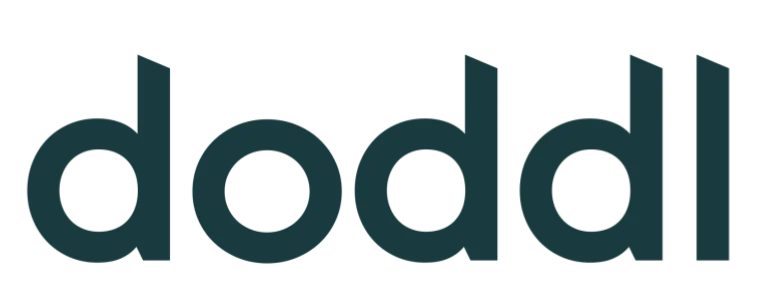Mortgage interest rates in Ireland are constantly in flux, making the prediction for their future direction a challenging task. While there is sense of optimism that rates may start to fall the big question is when and by how much.
For those in the process of applying for a mortgage, the choice of interest rate can be confusing. Despite the lack of competition in the market, there is a record 3.3% gap between the highest and the lowest rates available. This makes it so important to seek out market based advice from a broker, such as doddl, in order to secure the best rate for your circumstances. At doddl we constantly monitor rates and work with all major lenders so offer lowest market rates.
Where to next for mortgage interest rates?
Interest rates impact those taking out a new mortgage and also those with a mortgage who are coming to the end of a fixed rate. In the coming months interest rates will be a focal point for some 70,000 mortgage holders who are rolling out of low fixed rates to be faced with a very different rate environment.
So what do the experts say?
Market Analysts suggest the market is pricing in potential rate cuts of up to 1.5% by the ECB in 2024, with the first of these cuts flowing through to tracker mortgage holders over the coming months. Others think that this could be optimistic and see a 1% reduction on the card from June to year end.
This is extremely welcome news for the approximate 120,000 mortgage holders still on tracker rates, having weathered ten rate increases since July 2022.
The ECB rate jumped from 0pc to where it stands now at 4.75pc and with the average tracker margin at 1.15pc the average Irish tracker mortgage holders in Ireland is paying an interest rate of 5.9pc.
Tracker mortgage holders rates are directly linked to the ECB rate and a fall in the base rate would be passed on within 30 days. However, the same does not apply to the vast majority of Irish mortgages who are on non-tracker rates.
There are over 700,000 mortgages in Ireland, just over 500,000 recorded as primary residences.
Will banks in Ireland pass on mortgage interest rate decreases?
For mortgage holders who do not have a tracker mortgage, potential ECB rate cuts do not guarantee an immediate reduction from retail banks.
These banks determine their rates independently, based on their costs and broader market forces. Banks may be slow to pass on the full extent of cuts due to not fully passing on the increases of the past two years.
A collective drop in rates across the lending market is hard to not going to happen fast but once funding costs fall and rates start to drop we will hopefully see lenders cutting particular products to remain competitive.
Several factors will impact downward rate movement in the Irish market, including the funding mix of Irish lenders and, significantly, the lack of competition.
There may have been a time when political pressure played a part in keeping rates somewhat in check, due to State shareholding in the pillar banks. However the responsibility now rests on consumers to actively switch if their current lender is uncompetitive.
With a substantial 3.3pc difference between the highest and lowest rate on the market, mortgage applicants are urged to do their research or seek market based advice from a broker to secure the optimal rate for their circumstances. Paying a higher interest rate than necessary adds no value to a mortgage.
For those transitioning from low fixed rates this year, understanding their strengths, such as a lower loan-to-value ratio or eligibility for a Green rate, can contribute to securing lower rates in the current market.
Existing mortgage holders should not accept the first rate offered at the end of a fixed period; instead, they should proactively review and question their lenders, exploring better options available in the market.
What are the most popular mortgage interest rates in Ireland right now?
While in 2020 mortgage holders were locking in 7 year fixed rates at 2% and under, rising costs in 2022 meant that many were locking in 5 year fixed rates to safeguard against further rate increases.
2024 has brought more stability and with optimism that rates may fall many are favouring lower fixed terms such as 3 years and an uptick in mortgage holders opting for variable rates.
Despite the potential for rate decreases, security remains a priority for many, resulting in a continued preference for fixed-rate mortgages, with some starting as low as 3.65%.
While rates may indeed fall, the timeline remains uncertain. Mortgage holders hoping for a return to the sub-2% rates of 2016-2022 may need to exercise patience, as it would require extraordinary economic circumstances for rates to reach such low levels again anytime soon.
Need help to decide on what mortgage rate to choose?
If you are buying a home then contact our team to discuss your mortgage application and to work through rates that you would be eligible for. We will ensure you understand options open to you and work with you to secure the best available rate. Get started by providing some initial information and one of your advisor will contact you next working day – Start Here
Have a mortgage and looking to review rates and switch then our team can let you know if it makes financial sense to do so by comparing options and then we can help you with the application to switch right through to completion of the process. Get started, provide us with some initial information and we will be back to you with a full schedule of options – Switchers Start Here




